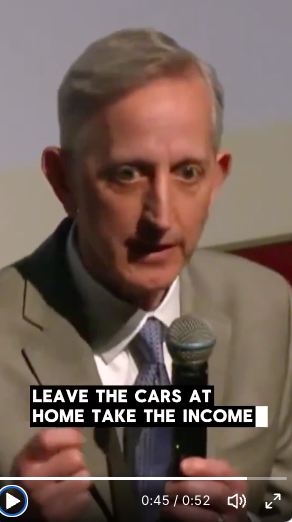After a four year hiatus, the Texas Transportation Institute has once again generated its misleading Urban Mobility Report–and its still wrong.
The UMR has been comprehensively debunked–it has never been peer-reviewed nor have its authors responded to authoritative critiques, it relies on a series of false premises, penalizes cities with compact development patterns and short commutes, ignores non-automobile travelers, and exaggerates all of its key claims. We’ll have an updated look at the latest iteration of the UMR (which relies on the same discredited methodology). In the mean time, here’s what we’ve written at City Observatory about this and other similar congestion cost “studies.”
The top ten reason’s to ignore the Urban Mobility Report.
Is congestion worse now? The Urban Mobility Report can’t tell us.
Another tall tale from the Texas Transportation Institute.
Boo! The annual carmaggedon scare is upon us.
Our essay, the Cappuccino Congestion Index, explains why, fundamentally, the methods used by TTI and others are utterly meaningless as measures of consumer costs.
Unsurprisingly, the newest iteration of the report is sponsored by the Texas Department of Transportation. And as always, the message is “build, baby, build.” The UMR has always been thinly veiled propaganda for building more and wider roads. It’s not designed either to help understand the root causes of traffic congestion (i.e. underpriced roadways), nor to fashion meaningful solutions. No one should take it seriously.
Todd Litman of the Victoria Transportation Policy Institute has written a comprehensive critique of the Urban Mobility Report.
Our own detailed critique of the Urban Mobility Report–“Measuring Urban Transportation Performance”– is published here.

